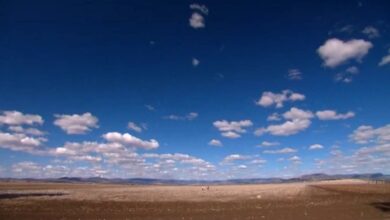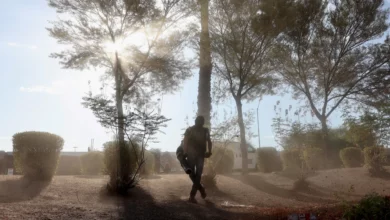The World People’s Conference on Climate Change and the Rights of Mother Earth came to an end yesterday, as delegates in Cochabamba, Bolivia gathered for the closing ceremonies to mark Earth Day.
The grassroots summit was called by Bolivian President Evo Morales–the only indigenous head of state in the world–to provide activists, experts, and government representatives with an alternative forum to the failed UN climate talks last December. According to official estimates, over 100 countries around the world were represented, including more than 40 official government delegations and thousands of activists and representatives of various social movements.
The conference consisted of 17 working groups which discussed concrete proposals: a declaration of rights for the protection of the environment, a climate justice tribunal to hold violators legally accountable, climate debt schemes to compensate under-emitting countries for damage caused to their ecosystems by global warming, and a global referendum on climate change.
Though the process was at times chaotic, progress was made on several proposals. A declaration of rights was formulated and modified by over one thousand delegates, who aim to complement the Universal Declaration of Human Rights by expanding rights-based protections to the environment. To be considered by the UN however, the document would need to be raised by a member state–a seemingly distant prospect at this point.
A working group on forests presented a final declaration rejecting the UN-sponsored Reducing Emissions from Deforestation and Forest Degradation (REDD) program–one of the more controversial issues at Copenhagen last winter. Introduced at the 2007 UN climate summit in Bali, REDD is being promoted as a global initiative to provide financial incentives for developing countries to reduce emissions through tropical forest preservation. Critics say the controversial program will in fact privatize and commodify tropical rainforests, rather than protect them.
"REDD is a predatory program that pretends to save forests and the climate, while backhandedly selling out forests out from under our Indigenous Peoples…displacing those of us least responsible for the crisis, who have been stewards of the forests since time immemorial,” said Tom Goldtooth, Director of the US-based Indigenous Environmental Network.
The declarations forged by the working groups in Cochabamba will be proposed by President Morales at the next UN climate summit in Cancún in December 2010 to counter the widely criticized Copenhagen Accord.
While many praise the Bolivian government for taking this initiative and for its progressive position on the international stage, others harbor reservations about its actual commitment to reducing emissions domestically. Some have expressed criticism of the Bolivian government’s climate change and energy strategies which continue to promote the growth of extractive industries, like mining and petroleum. As they move forward, many activists insist on maintaining autonomy from any government agenda. Keeping that critical distance, they argue, allows them to support Bolivia’s position in international talks while continuing to express concerns over its internal policies when needed.
The effectiveness of the conference will be largely determined in the coming months leading up to Cancun, during which delegates will prepare to make their voices heard at the UN official talks. As climate change increasingly becomes an issue of massive global mobilization–much like the anti-globalization movement of the 1990s–“democracy” has become a word on everyone’s lips, describing the transparency and sense of collective spirit that they feel marks these alternative gatherings.
Driven by feelings of frustration and exclusion, activists came to Cochabamba for a more open and democratic discussion about climate solutions. Perhaps the most important result of the summit is its success in creating such a forum, where disparate groups could gather without having to confront backdoor meetings, leaked documents, and police intimidation. As delegates now move forward, they seek no less than to redefine global climate justice and, in the process, redefine democratic practice.




